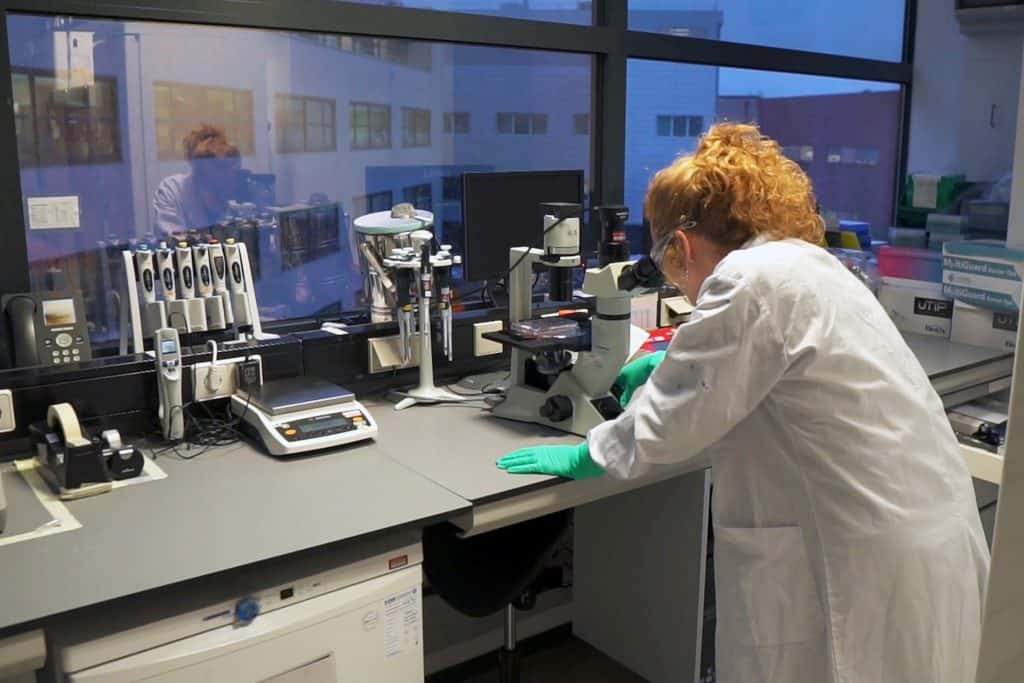
This article was originally published on 3/31/2021.
The teachings and pronouncements of the Catholic Church are often nuanced, reflecting complicated questions of faith, morality and ethics that confront us in the modern world. And often the nuance is lost in the sound and the fury that surrounds so many of society’s most contentious issues.
The COVID-19 pandemic presents one of those complicated situations that requires a nuanced response.
The coronavirus vaccine developed by Johnson & Johnson was recently approved for use by the U.S. Food and Drug Administration. News of the vaccine’s success in trials raised hopes that it might help bring an end to the suffering.
But the news also raised some difficult questions about the moral suitability of using vaccines developed, tested, and/or produced with the help of abortion-derived cell lines.
“Pfizer and Moderna’s vaccines raised concerns because an abortion-derived cell line was used for testing them, but not in their production. The Johnson & Johnson vaccine, however, was developed, tested and is produced with abortion-derived cell lines raising additional moral concerns,” Bishop Kevin C. Rhoades of Fort Wayne-South Bend, chairman of the U.S. Conference of Catholic Bishops’ Committee on Doctrine, and Archbishop Joseph F. Naumann of Kansas City in Kansas, chairman of the USCCB’s Committee on Pro-Life Activities, said in a statement.
Archbishop Naumann and Bishop Rhoades have been active on their respective committees for many years and speak often about the importance of pro-life issues.
More than 500,000 people in the United States have died because of the pandemic. Scientists and researchers have done tremendous work in a very short period of time to produce vaccines that hold great promise in slowing, even eliminating, the spread of the virus.
In most instances, people do not have a choice of which vaccine to receive. And health care providers, because of significant production and distribution issues, often do not have a choice about which vaccine they can offer to people.
The Church recognizes these complications.
“The Congregation for the Doctrine of the Faith has judged that ‘when ethically irreproachable COVID-19 vaccines are not available … it is morally acceptable to receive COVID-19 vaccines that have used cell lines from aborted fetuses in their research and production process,’” the bishops said. “However, if one can choose among equally safe and effective COVID-19 vaccines, the vaccine with the least connection to abortion-derived cell lines should be chosen. Therefore, if one has the ability to choose a vaccine, Pfizer or Moderna’s vaccines should be chosen over Johnson & Johnson’s.”
The Church has long advocated that the pharmaceutical industry stop using abortion-derived cell lines in developing vaccines and other treatments and is not abandoning that position now. The lives lost to abortion should never be reduced to raw materials for a production process, and researchers should continue to work to find moral and ethical alternatives.
But the pandemic poses a unique threat to human life. “Given the world-wide suffering that this pandemic is causing, we affirm again that being vaccinated can be an act of charity that serves the common good,” Bishops Rhodes and Naumann added.
Many overlook the nuanced position of the Church, and others focus only on the conflict. Lost is the goal of the Church’s position: to ease suffering and to serve the common good. It is certainly not an easy choice between two important goods that might seem to be in opposition to each other: If we have no other option than to accept the Johnson & Johnson vaccine, will we participate in the moral evil of abortion and its consequences?
The Church is reassuring Catholics that if no other options are available, receiving any of the vaccines serves the common good.









